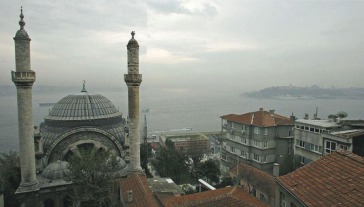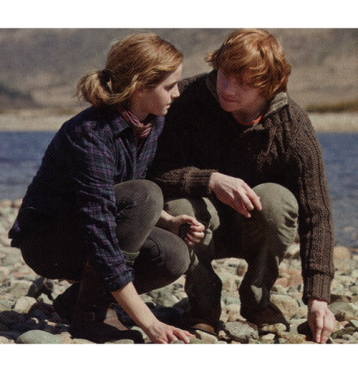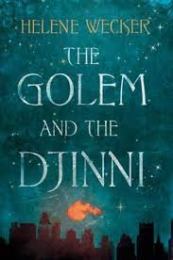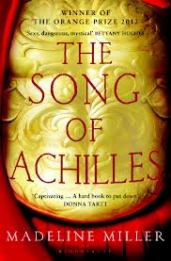 Was this the secret of Istanbul – that beneath its grand history, its living poverty, its outward looking monuments and its sublime landscapes, its poor hid the city’s soul inside a fragile web? But here we have come full circle, for anything we say about the city’s essence, says more about our own lives and our own states of mind. The city has no centre other than ourselves. (Istanbul, Orhan Pamuk.)
Was this the secret of Istanbul – that beneath its grand history, its living poverty, its outward looking monuments and its sublime landscapes, its poor hid the city’s soul inside a fragile web? But here we have come full circle, for anything we say about the city’s essence, says more about our own lives and our own states of mind. The city has no centre other than ourselves. (Istanbul, Orhan Pamuk.)
How do you talk about a city? How do you contain the sights, sounds, smells, emotions evoked by a sprawling tract of land and all the people it holds within a slim (or not so slim) book, imparting to your reader a definite sense of this place? Even more puzzling, how do you do it for someone who has never seen your city, let alone lived on and walked the streets you have described with such haunting immediacy?
My regard for Orhan Pamuk, winner of a Nobel Prize in Literature (2006) has always been of an abstracted sort. I looked up to him as I look up to any well-known, well-regarded author who hasn’t particularly touched me, but whom the ‘literary world’ applauds for stylistic, political or content-related reasons. The only one of his books I’d read was My Name is Red and I have to admit that it didn’t exactly have me gripped. I would take long breaks, pick up other books, return only when I’d refreshed myself and thought that I could handle the long sentences full of paintings that did not seem, even when described with such verve and enthusiasm, spectacular enough for all the hullabaloo.
I have a very close friend who would probably roast me alive for saying all this. But hey, honesty is the best policy, especially when it comes to literature. Besides, I’m sure Pamuk had enough fans before I got my hands on Istanbul. Now he has one more.
What Istanbul really does is take you on a black-and-white stroll down the streets of Pamuk’s neighbourhood, throw into your line of sight the gleaming Bosphorus with all its drowned secrets, reconstruct, painstakingly but oh so lovingly, the half-ruined histories of a capital steel reeling from its loss of political, cultural and economic significance. Caught in a struggle between a desire to ‘westernise’ and at the same time, to hold on to its rich past, Istanbul seems to drift in a haze its flaneur calls ‘huzun’, a peculiar melancholy that seeps through the streets, the air, the faces of its inhabitants and into the pages of a book, far away from the city-space. It is this huzun that defines the experience of this city, Pamuk notes, a huzun that affected, though they knew not what to call it, the Europeans who have viewed the city, the Turkish writers of old who attempted to rediscover it for themselves, and finally, has infected and affected Pamuk himself. 
Pamuk maps the city out for us through his years there: from his childhood in Pamuk Apartments through his first experiences in school, in love and finally, his all-important decision to abandon art and Architecture and become a writer. He ensures that we hear voices of as many residents and writers as possible: he discusses his debt to the French writers and painters who brought to life the beautiful, ‘picturesque’ Istanbul that he hunts; he pays homage to the builders of an unfinished, exhausting Turkish encylopaedia; he quotes with great amusement Turkish newspapers and periodicals admonishing the residents of Istanbul, seeking to teach them how to behave on the streets. He also paints loving portraits of his family and their adventures in the city, in society, from his fat grandmother eating breakfast in bed and overseeing the apartment to his final conversation with his world-weary mother wherein he makes his vocational choice.
I read Istanbul with a sort of wonder, amazed that someone could paint their home so lovingly and yet so unforgivingly. Pamuk is not sentimental about Istanbul; he emphasizes its dreariness, its dark alleys and darker history, its schizophrenic desire to emulate and yet remain distinct from the ‘West’. I found myself wishing I could do the same for another city, one which I think is, in many ways, eerily similar to Istanbul. Like the Turkish city, Delhi too has its rich cultural history, has seen many, many conquests and peoples come flooding through its gates. Like Istanbul, Delhi seems to both live with and desire to forget its past, crumbling walls of old forts juxtaposed to shining store fronts of designer boutiques and McDonald’s outlets. Like Istanbul, Delhi has seen its fair share of travellers, of writers and artists attempting to capture its magic. And like Istanbul, no one would call Delhi a ‘happy city’. In India, it bears a dark reputation, for a myriad of reasons, but still, that does not besmirch its position as a centre of learning, art and literature.
If I could recreate the magic Pamuk weaves when he talks about the Bosphorus, use his melancholic music to sing songs of Lodi gardens and the wonders of the Red Fort, I would. But I have a feeling that ‘huzun’ is not mine to steal, to utilize to discuss another city. No, huzun belongs to Istanbul, to its beleaguered people. Delhi needs another mood, another term to encompass the many emotions it evokes. When I find it, I will write that Delhi book.
And I will dedicate it to Orhan Pamuk.





